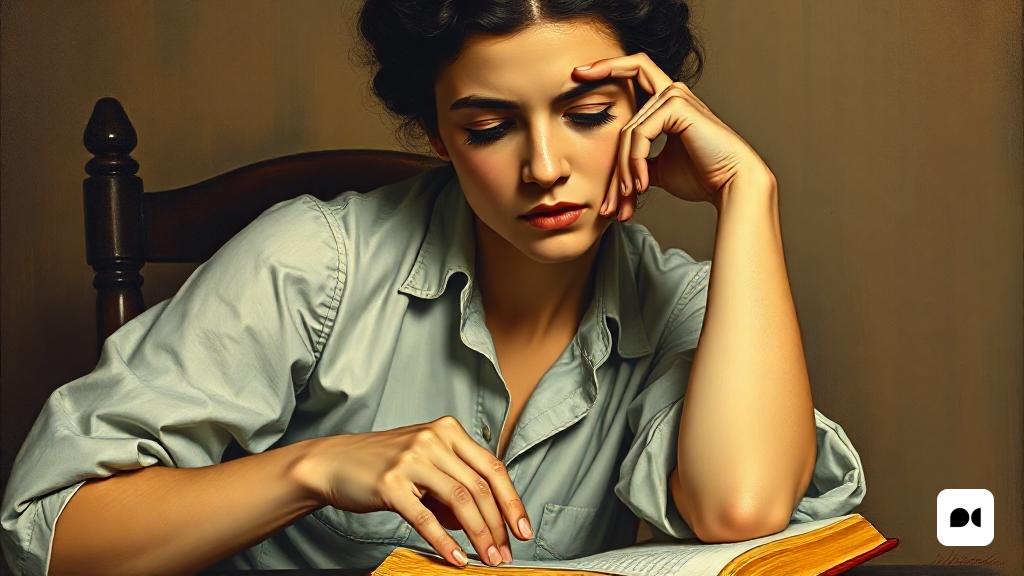A portrait in a devastated world
At the end of 1940, the painter Ubaldo Izquierdo Carvajal stands in front of his model, instinctively asking him to rest his left hand on a book, motionless. His pose is reminiscent of Rodin’s famous sculpture ‘The Thinker’, which initially represented Dante reflecting on his masterpiece. The result of this session is the portrait entitled ‘The memorialist’. However, Jaume Grau Casas, the writer he posed for, struggles with the frustration of being reduced to a simple chronicler, a passive observer of a decaying world.
The fight for dignity in poverty
In one of the many barracks of a French concentration camp in Bram, life is reduced to a struggle for survival. Hunger is constant, rats steal what little is left, and death piles up in the nearby cemetery. In this scene of anguish, tuberculosis advances relentlessly, leaving a trail of fallen who seem to be fighting against a stopped cart, a symbol of their desperate situation.
The reality of refugees
The decree law of November 12, 1938, the result of the Spanish Civil War, condemns refugees to zones of absence of rights. For Grau Casas, a man of firm convictions and renewed hopes, the acceptance of defeat becomes a necessity. His transfers between camps, including Montoliu and Argelers, are a reflection of his ordeal: nine transfers in six years, a true hell that does not separate him from his passion for writing.
Writing as an act of resistance
Despite his heart failure that sidelines him in the invalids’ unit, the writer does not give up. His pen becomes a weapon for survival, portraying the characters around him with a keen eye. His work, ‘Man in ruins’, is born from this collective effort, with the support of his family and collaborators who help to overcome censorship.
A literary legacy
The book includes a selection of poems and texts that demonstrate his talent as a writer, although his status as a witness often overshadows his creativity. Grau Casas becomes an essential voice to recover the memory of the concentration camps, a void that needs to be filled by history.
Humor as survival
His style is surprising: a mixture of humor, absurdity and reflection, with a tone that challenges the tragedy that surrounds him. He writes in a language full of exclamations, puns and cultural references that reveal his extraordinary memory. His experience in the concentration camp transforms his view of the world, and his ability to observe becomes a tool to communicate reality.
Humanity in dehumanization
In an environment where death is omnipresent, Grau Casas refuses to give up. Their relationship with other refugees, both Catalan and of various nationalities, becomes a space of solidarity and laughter, despite the pain. His micro-stories depict silent heroes who defy adversity with a smile, even as tragedy surrounds them.
A message of dignity and hope
His work is not only a testimony of a dark age, but also an act of vindication of human dignity. Grau Casas, with his irony and empathy, challenges indifference and injustice. In the end, despite the adversities, his quest for peace and freedom endures. His story is a reminder that, even in the most extreme circumstances, creativity and humanity can survive.
You can discover ‘Man in ruins’ by Jaume Grau Casas on the esperanto.cat platform, a work that invites us to reflect on the past and the strength of the human spirit.

